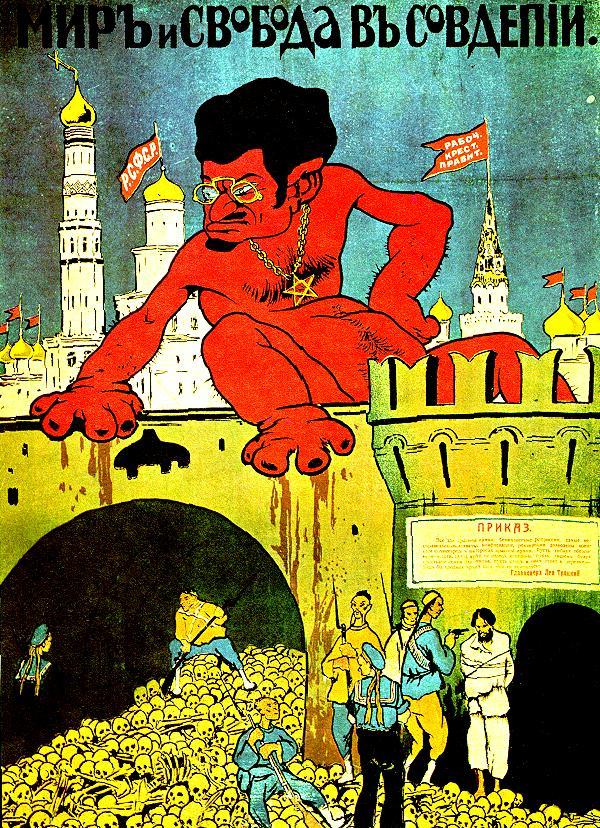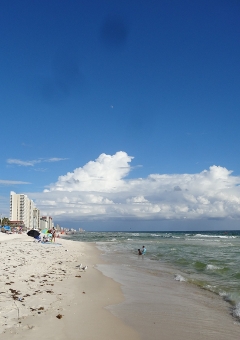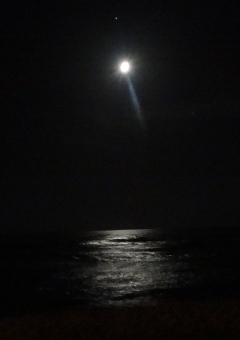Justifying the National Socialist Reaction to the Reichstag Fire, Part 2
The notes and reference materials used for this presentation have now been posted at the Christogenea.org Mein Kampf Project here:
The notes and reference materials used for this presentation have now been posted at the Christogenea.org Mein Kampf Project here:
Book of Acts Chapter 15 - Christogenea Internet Radio 09-27-2013
The end of Acts chapter 14 leaves us with Paul and Barnabas in Antioch in Syria after having returned from their first Christian missionary journey in Anatolia. On their first journey they did not venture far, travelling through the island of Cyprus and the Anatolian provinces of Pamphylia, Pisidia and Lycaonia. Western and Central Anatolia at this time was ruled by Romans, predominately settled by Greeks, and also contained populations of Phrygians, Phoenicians, Lydians, Galatians, and other White but non-Greek peoples.
Luke, the author of Acts, is said by the earliest Christian writers to have been a Greek from Antioch, which certainly seems to be true. Therefore he may have been with Paul on his first missionary journey, since the point of departure for that journey was Antioch, however it cannot be told from the accounts provided. It is even more likely that Luke was an actual eyewitness to the events described here in Acts chapter 15, since with all certainty Luke is in the company of Paul in Acts chapter 16, where he writes in the first person in Acts 16:10. That account describes Paul's second missionary journey, for which Antioch was the point of departure once again.
 Russia No. 1 is a collection of British diplomatic and military reports first published by the British government in 1919. It consists primarily of eyewitness accounts detailing the horrors of the Bolshevik (so-called) Revolution and the crimes of the Jews who were its chief leaders, participants, and perpetrators, and their destruction of Christian Russia.This report had a very narrow distribution and is therefore quite rare. The Jews and the western media which they control have misrepresented the nature of the Bolshevik Revolution from the very beginning, and to this day they suppress the accounts and records of its horrors. For that same reason they have always sought to suppress this report.
Russia No. 1 is a collection of British diplomatic and military reports first published by the British government in 1919. It consists primarily of eyewitness accounts detailing the horrors of the Bolshevik (so-called) Revolution and the crimes of the Jews who were its chief leaders, participants, and perpetrators, and their destruction of Christian Russia.This report had a very narrow distribution and is therefore quite rare. The Jews and the western media which they control have misrepresented the nature of the Bolshevik Revolution from the very beginning, and to this day they suppress the accounts and records of its horrors. For that same reason they have always sought to suppress this report.
This is an internet first: this report has, so far as we can find, never before been made available to the general public in an accurate and readable format. (There is a copy at archive.org which is hardly usable, having been scanned and OCR'd but never edited.) A facsimile of the original report has been available at Christogenea.org for over two years. Now an HTML version of the full text and a newly typeset PDF version reproducing the original text are also available.
We are grateful to Mr. Jerel Mosley for providing us with the facsimile, and our dear sister in Ohio who has labored to create a text edition.
From Page 6 of the Russia No. 1 Report:
"The foregoing report will indicate the extremely critical nature of the present situation. The danger is now so great that I feel it my duty to call the attention of the British and all other Governments to the fact that if an end is not put to Bolshevism in Russia at once the civilisation of the whole world will be threatened. ... I consider that the immediate suppression of Bolshevism is the greatest issue now before the world, not even excluding the war which is still raging, and unless, as stated above, Bolshevism is nipped in the bud immediately, it is bound to spread in one form or another over Europe and the whole world, as it is organised and worked by Jews who have no nationality, and whose one object is to destroy for their own ends the existing order of things." - Sir M. Findlay in a report to Mr. Balfour quoting the Dutch ambassador M. van Niftrik
The notes and reference materials used for this presentation have now been posted at the Christogenea.org Mein Kampf Project here:
Book of Acts Chapter 14 - 09-20-2013
XIV 1 And it happened in Ikonion that upon them entering into the assembly hall of the Judaeans and speaking thusly, that a great multitude of both the Judaeans and the Greeks were believing.
Ikonion, or Iconium as it is popularly spelled in modern times, is the principle city of Lycaonia (Lukaonia). Diodorus Siculus says little concerning the Lukaonians, as does Strabo, who only says that they are “barbarians” (non-Greeks) and he tells us that neither they nor their country are mentioned by Homer (Geography 12.3.27 and 14.5.27). The name Lukaon from which it is apparently derived belonged to several early heroes of Greek writing, including a son of the Trojan King Priam, and the district may have been named for one of them. There is no mention of Lycaonia in Herodotus. The city of Iconium itself was a Greek city-state which was said in legend to be founded by Perseus, an early mythological figure of the Danaan Greeks who was also said to have vanquished the former population. However Xenophon, writing in the early 4th century BC, calls Iconium “the last city of Phrygia” in his Anabasis (1.2.19). In more ancient times, the land apparently belonged to the Phrygians, who were related in the ancient Greeks poets to the Lydians. The Lydians are mentioned as Lud, the son of Shem, in Genesis chapter 10, and again in Isaiah 66:19 as one of the places to which Yahweh would send the dispersed of the children of Israel. By the end of the 7th century BC, most of Phrygia had been destroyed by the Kimmerians, who were indeed a group of the dispersion of Israel. At the end of the 3rd century BC the area was settled by the Galatae, and Galatia was to its north. These were also descended from the dispersions of Israel, and Galatae was in early times a general name given to the Germans and Gauls by the Greeks. Trojans, Phrygians and Galatians would all have been considered as barbarians to Strabo, however the principle residents of the city itself appear to have been Greeks. Strabo calls Iconium “a town that is well settled and has a more prosperous territory than the” plateaus of the Lycaonians. We shall see later in this chapter that some of these “Barbarians” are found in Lystra, another city in which Paul preaches.
Get your copy of the latest issue of The Saxon Messenger, an online PDF magazine and a project of Christogenea.
Visit the site at SaxonMessenger.org or click the PDF icon to download the magazine. Share it with everyone that you can!
This month's Saxon Messenger features Life's a Beach, The Canaanite Woman: The Biblical Perspective, and The Prophecy of Amos, Part 2, all by William Finck.
The article presented for this program is found at the Christogenea Mein Kampf Project:
Book of Acts Chapter 13, Part 2 - 09-13-2013
Last week presenting part one of Acts chapter 13, due to its great length we were impelled to leave off in the middle of Paul's address to an assembly of Judaeans in Pisidian Antioch. This address began in verse 16 of the chapter, and in it Paul's primary task was to explain that the ministry, death by crucifixion, and subsequent resurrection of Yahshua Christ was indeed the fulfillment of the scriptural promises of a Savior and King to the children of Israel. Presenting the beginning of Paul's discourse last week, we read from 2 Samuel, Jeremiah chapter 30, Hosea chapter 3, and Isaiah chapter 53 in order to show just some of the many scriptures which support Paul's assertions. Part of Paul's challenge was to convince the Judaeans dispersed throughout the oikoumene that this is true, that Yahshua Christ was indeed the fulfillment of these promises found in Scripture, and in every place which he visits, he uses the local assembly-halls of the Judaeans in order to introduce himself to the Judaeans and to the people.

Articles employed in the making of this presentation are accessible at the Christogenea.org Mein Kampf Project:
Book of Acts Chapter 13 - Christogenea Internet Radio 09-06-2013
It has been nearly a month since we presented Acts Chapter 12 here. In that chapter we saw the murder of the elder James, the son of Zebedee, and the arrest and miraculous escape of the apostle Peter. Both the murder of James and the arrest of Peter were on account of the political motives of Herod Agrippa. Upon the escape of Peter, we are also introduced to the apostle Mark. Towards the end of the chapter we see the death of Herod Agrippa, who did not deny himself when the people extolled him as a god, and the cause of his death as recorded here in Acts we also saw corroborated by the Judaean historian, Flavius Josephus.
XIII 1 And there were throughout the assembly which was in Antiocheia prophets and teachers, namely Barnabas and Sumeon who is called “Niger” and Loukios the Kurenaian, and Manaen a childhood companion of Herodas the tetrarch, and Saulos.
The Codex Laudianus (E) and the Majority Text have “certain prophets and teachers”; the Bezae (D) has “prophets and teachers among them”; the text follows the Codices Sinaiticus (א), Alexandrinus (A), and Vaticanus (B). Antioch was 300 miles north of Jerusalem. It was on the Orontes river and about 20 miles upriver from the Mediterranean coast of northern Syria. It was not far from the sites of ancient cities such as Arpad, Qarqar, Hamath and Carchemish. However it seems to have been a new city founded by Seleucus Nicator, a Greek king of the early Hellenic period, around 300 BC.
Life's a Beach (a pun of course): tales from our August vacation.
 For months Melissa had looked forward to the twelve day vacation we had been planning, and to spending a good deal of that time sitting on Panama City Beach. Our friend and brother, John Wade Moore, had offered to put us up for a week – or perhaps to put up with us for a week – and we certainly wouldn't turn down his hospitality. So adding a few days to the beginning and end of the time he offered, we also had the opportunity to visit with some of our Christian brethren along the way.
For months Melissa had looked forward to the twelve day vacation we had been planning, and to spending a good deal of that time sitting on Panama City Beach. Our friend and brother, John Wade Moore, had offered to put us up for a week – or perhaps to put up with us for a week – and we certainly wouldn't turn down his hospitality. So adding a few days to the beginning and end of the time he offered, we also had the opportunity to visit with some of our Christian brethren along the way.
On the night of August 13th, we had dinner and grabbing a few bottles of some good German beer we headed down to the beach to sit and watch the stars. Sitting in the moonlit darkness of a clear night on Sunnyside Beach, which was a stop on the way to our destination the next morning, we saw three unusual lights in the sky, which were certainly not planets or stars.  The lights were not part of a single solid object, but were rather points forming a triangle, and each of them would disappear momentarily and then quickly reappear, in a constant rhythm that lasted the entire time we observed them. The rhythm was almost as if the lights were three points on the dial of a clock, each obscured momentarily as an imaginary second hand swept over it. We watched them for well over an hour, and they seemed to be drifting up and down the Florida coast, sometimes a little closer to each other and sometimes moving further away. And while we could see the stars in the background between them, they always maintained the same triangular shape in relation to one another. The next day we noted that in relation to our location, the lights were in the same direction as Eglin Air Force Base. Searching the internet, we found a video which claimed to be of something similar to what we saw, but not quite exact, which was claimed to have been taken at Lehigh Acres, Florida on August 8th, at least 300 miles southeast of where we were staying. Were they UFO's? Some secret government technology? We won't join in the conjecture and the conspiracy theories, but we indeed saw what we describe here.
The lights were not part of a single solid object, but were rather points forming a triangle, and each of them would disappear momentarily and then quickly reappear, in a constant rhythm that lasted the entire time we observed them. The rhythm was almost as if the lights were three points on the dial of a clock, each obscured momentarily as an imaginary second hand swept over it. We watched them for well over an hour, and they seemed to be drifting up and down the Florida coast, sometimes a little closer to each other and sometimes moving further away. And while we could see the stars in the background between them, they always maintained the same triangular shape in relation to one another. The next day we noted that in relation to our location, the lights were in the same direction as Eglin Air Force Base. Searching the internet, we found a video which claimed to be of something similar to what we saw, but not quite exact, which was claimed to have been taken at Lehigh Acres, Florida on August 8th, at least 300 miles southeast of where we were staying. Were they UFO's? Some secret government technology? We won't join in the conjecture and the conspiracy theories, but we indeed saw what we describe here.
Christogenea is reader supported. This month's support level is reflected in the graph below. See our Contact page for a mailing address and other ways to support Christogenea.
63%
Recent comments